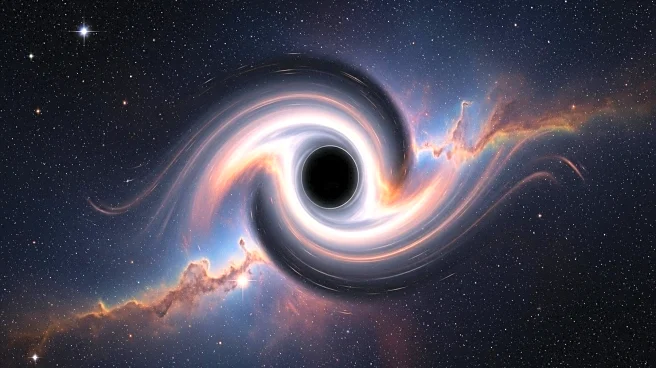What is the story about?
What's Happening?
Physicists at the University of Massachusetts Amherst have proposed that a black hole explosion, potentially observable within the next decade, could provide evidence for primordial black holes. These black holes, theorized to have formed shortly after the Big Bang, could offer a definitive catalog of subatomic particles, including those hypothesized like dark matter. The research suggests a more than 90% probability of witnessing such an explosion, which would be detectable by current telescopes through Hawking radiation.
Why It's Important?
Observing a black hole explosion would be a groundbreaking event in physics, offering direct evidence of Hawking radiation and primordial black holes. This could revolutionize our understanding of the universe's origins and the fundamental particles that compose it. The findings challenge long-held assumptions about black holes and suggest that such events may be more common than previously thought. This research underscores the importance of preparing observational tools to capture these rare cosmic phenomena.

















